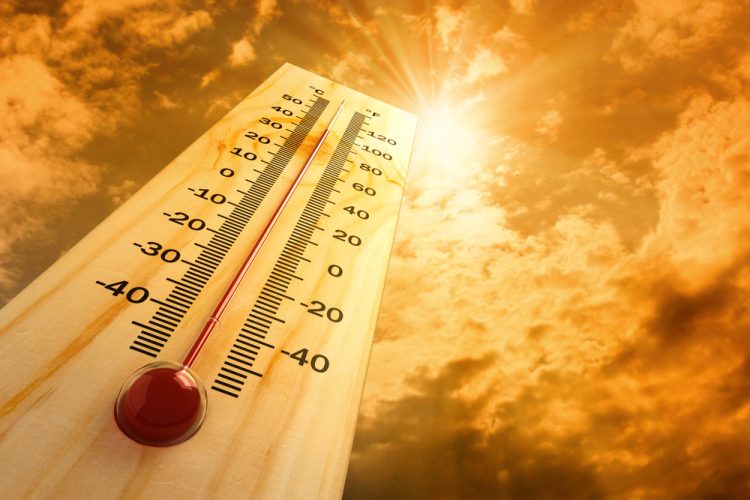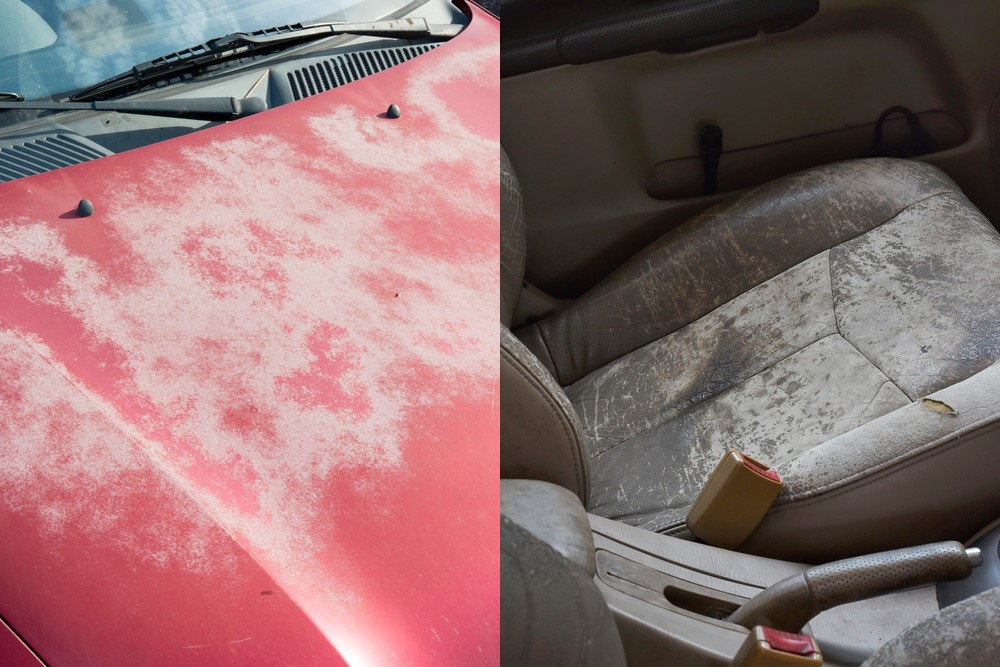
According to climate experts, the world is getting hotter. For most of us, it has meant dealing with what feels like excessive heat during summer months. We long for winter and cooler temperatures. Aside from our own personal comfort, extreme summer heat can cause damage to our vehicles, homes and other items. Modern cars are designed to withstand a certain degree of heat, but over-the-top warming can be detrimental to your car’s performance.
Can extreme heat cause car problems? Yes, it can. However, don’t despair. There are steps you can take to address problems caused by excessive warmth. One of the best things you can do is be prepared, so keep reading to learn more.
How Extreme Heat Can Cause Car Problems
Intense heat and higher-than-normal temperatures can wreak havoc on many components of your automobile engine, including battery failures, cracked hoses and belts, failing spark plugs and fluids that affect things like power steering. Here’s a look at some of the ways hot weather can affect other parts:
- Oil Breakdown: Engine oil is the lubricator, helping all the moving parts engage smoothly. Extreme heat can cause oil to age more quickly than normal. As fluids go down, corrosion, sludge and abrasion go up.
- Tire Problems: It’s always important to use a tire pressure gauge to check your tire pressure, but even more so in increased (or decreased) temperatures. In the summer, your tires’ air pressure increases and, in the winter, it decreases. The last thing you want is to deal with a flat tire on the side of the road – in any season, but especially when it’s brutally hot or cold.
- Cooling System Stress: Your vehicle’s cooling system is designed to keep your engine safe by allowing various components, such as water pump, radiator, hoses and coolant, to work together seamlessly. In over-the-top heat, any one part can fail, leading to a higher engine temperature and possible engine failure. Driving in heavy traffic only increases the issues.
- Fuel System Imbalance: Your car’s fuel economy is driven by how the fuel system operates when it “detonates” the fuel/air mixture. These chemical processes can be altered in hot weather, causing possible damage to spark plugs and piston rings.
- Wiper Blade Failure: What you really want to see when you’re suffering through a heat wave is the welcome raindrops of a thunderstorm. However, if your vehicle has been sitting in the hot sun for a while, you may not have healthy wiper blades when you need them the most. Heat may cause the rubber to degrade, so keep an eye on this.
Intense heat can cause a lot of damage to anything it touches, including your vehicle. Staying abreast of regular maintenance – and maybe increasing your vigilance – can go a long way to making sure you aren’t on the side of the road in a hot mess. Keep an eye out for low tires, coolant issues, the engine temperature, your car’s battery and proper fluid levels.
4 Factors That Make Your Car Vulnerable to Heat
If you live in Arizona or any other southwestern desert, you may already know how certain situations can aggravate a hot summer, especially when it comes to your car. Here are some things to keep an eye out for and adjust where you can.
1. Extremely High Temperatures
Lately it seems like almost everyone has been suffering from extreme temperatures. There are some situations where drivers need help, including when driving in heavy traffic. It’s a good idea to leave a few minutes early or late – or find an alternate route – to avoid being stuck on hot asphalt while you and your car slowly come to a boil.
2. Old or Poorly Maintained Cars
Older cars and those that don’t receive regular maintenance are more likely to suffer in the heat. If you aren’t comfortable doing it yourself, ask your trusted mechanic for help. Things to keep on top of include battery fluid, other fluids, belts and hoses, oil, coolants and more.
3. Stop-and-Go Traffic
Like heavy traffic, stop-and-go traffic is far worse in the heat than say taking a road trip or heading out for long distances. When you ask your vehicle to continue stopping and starting in extreme temps, issues may begin to arise.
4. Lack of Shade
As all desert dwellers know, you can’t find much shade under a cactus. However, in hot temperatures, your best bet is to try to park in the shade if it’s available. If not, a car cover or a windshield screen can help. Cracking the windows to allow some air exchange is also a good tip.

Exterior Car Damage in Extreme Heat
Excessive heat and sun glare can damage the exterior of your car in many different ways. There are steps you can take to protect that beautiful paint job.
- Use a car cover: Find a car cover that is specifically designed to protect against UV rays if you park for an extended period of time.
- Wax and sealant: Car wax and paint sealant can help minimize fading and other issues.
- Keep it clean: Regularly wash your vehicle to remove dirt and grime that can affect the finish.
Interior Car Damage Due to Heat
Intense heat and glare can also damage your car’s interior. Aside from that, heat buildup inside the vehicle also causes degradation to your seats and other upholstery, plus plastic parts like your dash and panels. Here are some tips to reduce the toll on your interior.
- Park in the shade: Park in the shade when possible. Use a car cover if parking for an extended period of time.
- Use a sun shield: A sun shield can reduce the glare inside your vehicle, as well as help keep the heat level lower.
- Install seat and dash covers: Covering your fabric and plastic elements can help keep the sun’s glare at bay.
Best Ways to Cool a Hot Car
Getting into a hot car is as bad as standing outside of one – or worse. But there are a few tips for how to cool your car down to a more comfortable place. It involves helping the hot air inside find an exit – as quickly as possible!
- Open windows and doors: the goal is to give the hot air a way out.
- Turn on the air conditioning: At first, you’ll want to put it in ventilation mode, which draws in outside air to help push out the hot air. After that, switch the air conditioning system to recirculation mode and turn it up as high as it will go! Gradually, lower the AC down to a more chill setting.
- Have patience: Your car isn’t going to become comfortable in a few seconds. Just give it a few minutes and you’ll feel much better!
Remember, before you leave your car: Use a sunshade to block the sunlight and crack the windows, if it’s safe to do so.
How Can You Keep Your Car Cool and Trouble-Free in the Heat?
We know that extreme heat can cause car problems and we’ve learned some ways to reduce the threat. Some of the most important things to remember come down to basics. The best ways to care for your vehicle in extreme temperatures is to pay attention to parts and components that can spell disaster in these conditions if allowed to become damaged.
Regular Maintenance and Care
You can help your car survive the summer heat by always doing regular maintenance and care – even more frequently under less-than-perfect conditions. Motorists who don’t have the ability of a mechanic can simply take their car to the nearest shop, before the heat takes its toll. A little extra care goes a long way to protecting your ride that you depend on to get you where you need to go.
Beat the Heat: Drive Safely and Minimize Car Issues
Everybody needs a little extra care in hot weather. That means your car, too. Take the necessary steps to get preventative maintenance, as well as finding the right auto insurance to protect you in other ways. At Freeway Insurance, we have the best prices and the best service. You can get a fast and free insurance quote online, give us a call at (800) 777-5620 or stop in one of our convenient locations today.



